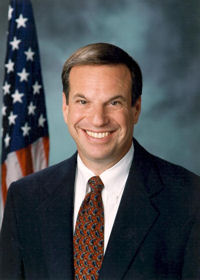

Trying to figure out who controlled the Merchant Marine and who should have made certain that the Merchant Marine of WWII were included as veterans is as futile as a game of “Who’s on First?” The question is who got lost in this bureaucratic, interagency shuffle? The answer is the Merchant Mariners who served selflessly despite all of the discord. The Navy, as author Brian Herbert notes in his book, The Forgotten Heroes, exerted “de facto authority” over the Merchant Marine service when it gained control of the Coast Guard-which in 1942 had become responsible for the inspection of Merchant Marine vessels and for the examination, licensing and certification of Merchant Marine personnel. Hence, all Merchant Mariners were under the auspices and control of this Federal Government agency. War Shipping Administration, as an emergency wartime agency, took control of the purchasing and operation of commercial shipping vessels.
#BOB FILNER AND THE MONSTER WITHIN KPBS FULL#
Maritime Service (USMS), the training arm set up in 1938, it grew the number of Merchant Mariners from 55,000 pre-war to over 250,000 men and opened training facilities around the country, including Sheepshead Bay and a full Merchant Marine Academy by 1942. Maritime Commission was established to oversee the rebuilding of this fleet. Congress passed the Merchant Marine Act of 1936 to rebuild our nation’s Merchant Marine that had died out after WWI. The majority were unaware of the fine distinctions between the Merchant Marine, Navy, Coast Guard or other armed branches in terms of veteran status after wartime. The short story is that the country needed these men, and these men wanted to serve. Also, the Merchant Marine was ahead of its time because it was the only branch of service that did not discriminate based on race and that accepted men as young as age 16. Untold numbers of these men were steered from the uniformed branches to join the Merchant Marine because as they were told by the recruiting officers, that’s where your country needs you. There were 37 official government recruiting offices set up around the country, with many offices located next to the Navy and Coast Guard offices. Maritime Service (USMS) which trained the Merchant Marine. During WWII, there was active recruitment for men to join the U.S. Many of the Merchant Marine detractors claimed these men were draft dodgers. At this time I would like to submit for the record a joint letter of support from four Maritime Organizations wherein it quotes General Dwight Eisenhower, leader of the Allied Forces of WWII who succinctly summed up the contributions of the Merchant Mariners, “When final victory is ours there is no organization that will share its credit more deservedly than the Merchant Marine.” The government suppressed these dreadful numbers to ensure a steady stream of Merchant Marine volunteers, needed to man the thousands of Liberty Ships built in anticipation of the war effort. But the hulking, slow Liberty Ships of the day were little more than sitting ducks for German u-boats and wolf packs. A death rate of this magnitude is unimaginable and would not be tolerated in our current wartime endeavors in Iraq and Afghanistan. In the concluding months of the war, as a part of Operation Magic Carpet, the Merchant Marine ships brought home over 3.5 million men deployed overseas.ĭuring WWII, Merchant Mariners worked the most dangerous details and suffered the highest casualty rate of any of the other branches of service, with nearly 1 in 26 dying in the line of duty. and England and from Normandy to Okinawa. Merchant Mariners participated from the beginning of the war both here and abroad-from the Atlantic coastal waters of the U.S. The ships they commanded carried troops, tanks, food, airplanes, fuel, locomotives and other critical supplies to every theater of war. It is indisputable that the Allied Forces would not have been able to begin, sustain, or win WWII without the valiant service of the Merchant Marine. We are here today to shed some light on the mysteries surrounding the treatment that the Mariners suffered by being denied GI Bill benefits at the end of WWII and to find a way to compensate them, 60 years later, for their heroic deeds.

This morning, our Committee continues its quest to correct a grave injustice heaped upon the gallant men of the Merchant Marine of World War II. Honored Guests, Committee Members, and the brave men and women of the Merchant Marine.


 0 kommentar(er)
0 kommentar(er)
